August 25, 2025 | 20:35 GMT +7
August 25, 2025 | 20:35 GMT +7
Hotline: 0913.378.918
August 25, 2025 | 20:35 GMT +7
Hotline: 0913.378.918
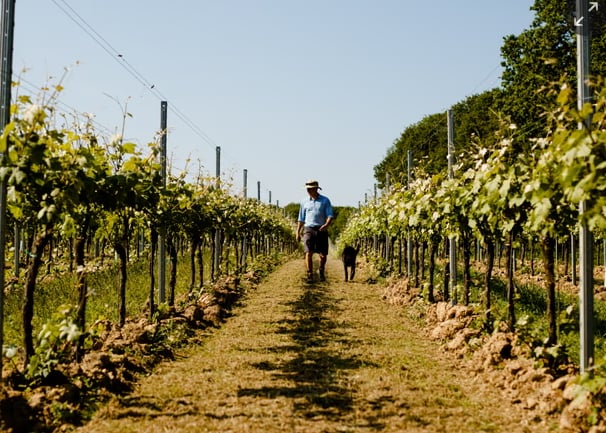
The climate crisis is expected to increase the price of wine, olives, citrus fruits and vegetables as costs rise. Photograph: Charlie Clift/Charlie Clift/Gusbourne Vineyards.
I’m not ready to change jobs,” says Stellios Boutaris, a wine producer with vineyards in Naoussa and Amyndeon in northern Greece, as well as on the island of Santorini. But, he adds, “we cannot do it the way our fathers did.”
Boutaris is determined to keep producing in the region and keep the family business going but says “the curve is not looking good” as the climate crisis puts pressure on producers across the Mediterranean.
Boutaris, who heads the Kir-Yianni wine producers’ group, is one of thousands of farmers in the south of Europe battling to continue producing on the lands their ancestors have farmed for decades, or even centuries, as increasingly extreme weather, such as this summer’s wildfires, rage across Spain, France and Greece.
Their struggles mean the price of wine, olives, citrus fruits, and vegetables is expected to continue rising, as droughts, flash floods, and high temperatures affect traditional crops in the Mediterranean.
Boutaris is employing new tactics to tackle the problem, including installing irrigation and water storage and planting more vegetation among the vines to help the land hold more water and keep temperatures down. He is also buying higher land and seeking out different varieties of grapes that are more resilient to extreme weather.
He has just invested €250,000 (£216,000) in irrigation and plans to spend a further €200,000 (£173,000) on a project to plant 40 hectares of vineyards in Santorini.
Producers across Europe will be forced to pass on such extra costs to consumers, in the form of higher prices, he argues. “Cheap wine is not going to be easy to find. It used to be that the south of France, Spain and Greece produced cheap wine of Europe. Now it is going to be very difficult to compete on price,” he says.
Shoppers are already feeling the effects, as droughts in Spain, Italy and Portugal, where the UK sources much of its fresh fruit and vegetables during autumn and winter, push up prices this summer, at a time when prices would usually fall.
This summer even farmers in parts of the UK have been hit by long dry spells affecting production of cereals, potatoes, carrots and broccoli, which are not usually irrigated.
Things are expected to get far worse due to the climate crisis. In the EU, the average annual loss for crops is forecast to increase by up to two-thirds by 2050 to as much as €24.8bn, according to analysis by the European Investment Bank (EIB) and the European Commission.
Under the Intergovernmental Panel on Climate Change's “middle of the road” projections, Spain, Italy, and Greece are expected to experience the most severe increase in drought risk by 2050, with more than nine times as many days of severe drought conditions each year compared to 1990.
France, Italy, Spain and Romania are likely to see the largest absolute increases in crop losses – with average annual losses expected to increase by 64%, or more than €1bn (£866m), with drought a major factor, according to the EIB and commission’s report.
In 2022, for example, maize yields were down 24% on the previous year across Europe with Spain bearing the largest proportion of losses followed by France, Italy and Romania.
Dr Peter Alexander, a professor of global food systems at the University of Edinburgh, says it is already possible to see the northern march of crops within Europe, with champagne producers investing in the UK and maize growing in Scotland.
British farmers are experimenting with crops such as haricot beans and chickpeas, which historically have been difficult to grow, in the hope that they may thrive in a warming climate. One farmer in Essex has even planted more than 1,000 olive trees with support from Belazu, the premium olive oil company.
However, the more the climate crisis progresses the harder it becomes to adapt and the more costly it becomes. Alexander says this effect is already evident in more exotic crops, which require very specific growing conditions and are now under pressure, such as coffee and cocoa. “In high income countries they are available but less affordable,” he says.
In southern Europe, family-owned farms are struggling to find the resources to fund adaptation to keep growing.
“Already what we see is groves get abandoned and people can’t afford to be farmers any more,” says Sarah Vachon of the Citizens of Soil olive oil brand, which works with independent producers around the Mediterranean.
She says farmers are looking at many ways to keep going, from irrigation to new varieties but “these are big investments for small farmers already living on the bread line and these things are difficult to get government funding for”.
Boutaris says that, in Greece, there are areas where family farmers have already deserted land and chosen other lifestyles as it has become too difficult to farm.
According to Alex Fernández Poulussen, a director of Good Stuff International, which is coordinating a collective water programme in the Guadalquivir river basin in southern Spain, action is necessary as water storage is less than half full in Spain and demand is very high.
He says that the amount of land under cultivation in the area is likely to reduce with some farms being sold to investment funds for solar farms or being turned from citrus or avocado orchards to less thirsty crops such as wheat, maize, cereals or olives.
After several years of drought in southern Spain, there are major projects to develop a coordinated approach to storing and using water more effectively, including new forms of irrigation.
“Things need to change because of the climatic situation but there is a lot of proactive innovation and effort,” he says.
Walter Zanre, the chief executive of the UK arm of olive oil brand Filippo Berio, says that production in Andalucía, Puglia, Sicily, Greece, Tunisia and Turkey is set to be affected by higher average temperatures and less rainfall.
“There are many projects to try to conserve water and use it for irrigation. But in order to conserve water, first it has to rain. We have had winter rains this year, but in the previous three years it has been a virtual drought.”
With concerns about future supplies, Filippo Berio has invested in storage tanks to hold an extra 3,000 tonnes of oil in the past five years and temporarily rented space for 1,000 more, as well as turning to a wider array of sources for olive oil, including Latin America.
Lambert van Horen, an analyst at Rabobank, says the financial group is predicting that there will be no increase in agricultural production per hectare in Europe in the coming five years, ending decades of improvement aided by increased efficiency and better fertiliser.
However, that means higher prices. “In the last five years prices of fresh produce have kept up with inflation or have been even higher than general inflation. In the next five years we expect food again to at least follow general inflation,” he says.
“Farmers will get higher prices and they need that because their inputs are getting more expensive.”
That could involve building more shade houses or greenhouses where temperatures and water flows can be more controlled, whatever the climate, to building more storage.
“There will be more costs because adaptation, especially when crops are not so valuable such as grains where the revenue per hectare is relatively low,” says van Horen.
In Greece so far it has been a decent year for many wine producers after two tough years. Still, with wildfires raging, many small farmers are considering their futures.
Boutaris is determined to carry on: “There has got to be a way to do it and I want to show it can be done.”
The Guardian
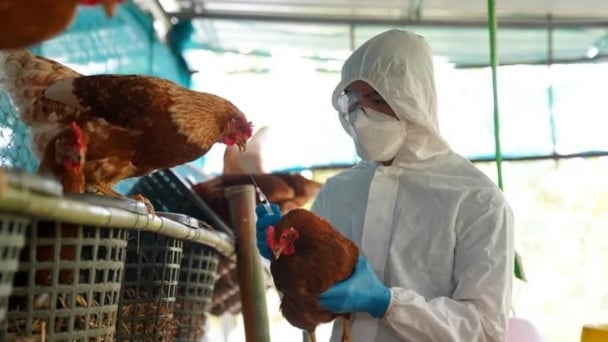
(VAN) A new outbreak of highly pathogenic avian influenza (HPAI) has been confirmed by Argentinian authorities at a layer farm in Buenos Aires, Argentina.
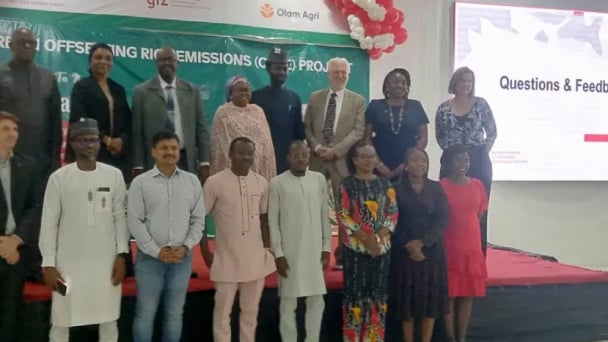
(VAN) The German Government has inaugurated the Carbon Offsetting Rice Emissions (CORE) Project to support 12,000 smallholder farmers in climate-smart rice production across Benue, Nasarawa, and Kano States.
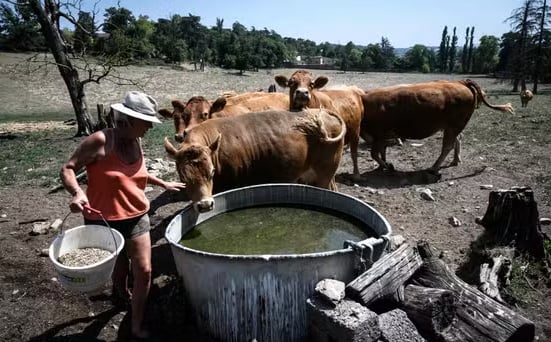
(VAN) Orchardists, winegrowers and livestock farmers fear the negative impact of the current heatwave on their production.
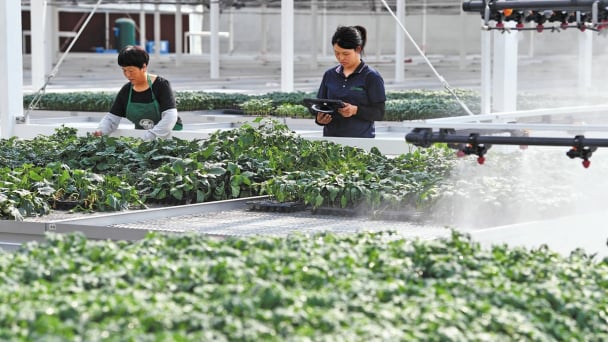
(VAN) Smart cultivation overturns traditional farming in Raoyang.
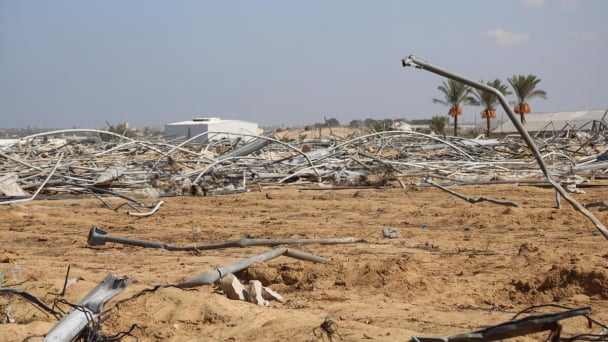
(VAN) Food production cannot be reactivated without a significant shift in accessibility, safety, investments and support for local communities and livelihoods.

(VAN) Officials are debating how to placate farmers’ need for migrant labor without appearing to offer amnesty to undocumented immigrants.